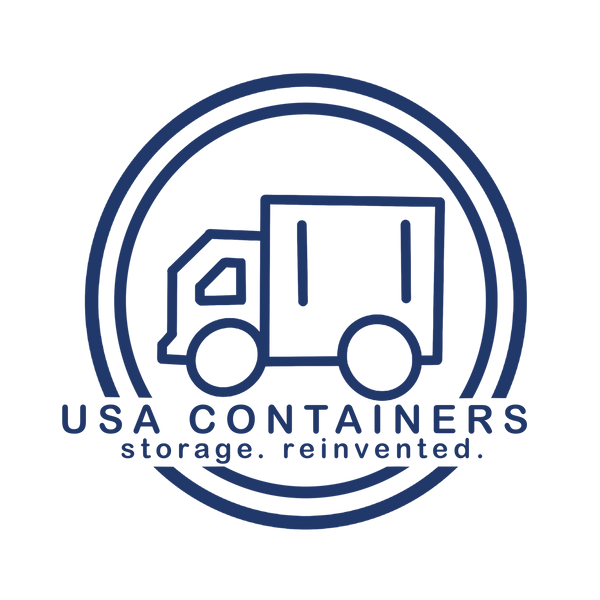
The Benefits of Using Shipping Containers as Kitchens
Share
Shipping containers aren’t just for cargo anymore. In recent years, they’ve been repurposed into everything from homes to pop-up shops. One of the most practical and creative use is converting them into temporary or mobile kitchens. Whether you’re a caterer, a festival food vendor, or a restaurant owner testing a new concept, shipping container kitchens offer a durable, flexible, and cost-effective solution.
This article covers the key benefits, considerations, and use cases for shipping container kitchens, along with some insights into customization and why they’re a smart choice for food businesses that need mobility without sacrificing functionality.
Why Use Shipping Containers for Kitchens?
Shipping containers are designed to withstand harsh environments, making them a sturdy and weather-resistant option for mobile kitchens. They're easy to transport, which is perfect for temporary setups at events, construction sites, disaster relief zones, or seasonal food courts. But the appeal goes beyond mobility.
You can add electrical, plumbing, and ventilation systems just like you would in a brick-and-mortar kitchen. With the right modifications, a container can meet local health codes and commercial kitchen standards.
Key Benefits of Shipping Container Kitchens
1. Speed of Deployment
Traditional restaurant builds can take months. Shipping container kitchens, on the other hand, can be fully outfitted and ready to use in a matter of weeks. This quick turnaround is especially valuable for time-sensitive projects like festivals, emergency response operations, or high-traffic events.
2. Lower Cost Compared to Permanent Builds
Purchasing and customizing a shipping container is often more affordable than building a standalone kitchen or leasing commercial space. You also avoid many of the overhead costs associated with long-term leases.
3. Mobility and Flexibility
Shipping container kitchens can be placed almost anywhere there's enough flat ground. If business is booming at one location and slows down in another, it’s possible to relocate with minimal hassle. This flexibility allows food entrepreneurs to test new markets without committing to a permanent address.
4. Durability
Made of heavy-duty steel, shipping containers are built to endure. They can handle rough weather, daily wear and tear, and the demands of a busy kitchen environment. They also offer security when not in use, thanks to lockable doors and steel walls.
5. Customization Options
From stainless steel prep surfaces to commercial-grade fryers, range tops, and dishwashing stations, everything you need in a standard kitchen can be built into a shipping container. Ventilation hoods, fire suppression systems, and refrigeration units are also common additions.
Common Use Cases
Event Catering
For caterers working large-scale outdoor events, a container kitchen provides the benefits of a full kitchen in a portable format. It’s ideal for weddings, concerts, and food festivals where on-site food prep is necessary.
Disaster Relief and Community Response
Organizations involved in disaster response often need to feed large groups of people in areas without infrastructure. Mobile shipping container kitchens can be deployed quickly to serve hot meals where they’re needed most.
World Food Programme’s Kitchen in a Box
Construction and Remote Work Sites
Feeding workers on a job site can be a logistical challenge. Mobile shipping container kitchens offer a reliable way to provide meals in remote or undeveloped areas without sacrificing food quality or safety.
Temporary Kitchen During Renovations
Restaurants undergoing renovations still need to serve customers and keep revenue flowing. A shipping container kitchen parked nearby keeps the business operational while the main kitchen is offline.
Seasonal Pop-Ups
Shipping container kitchens are ideal for pop-up restaurants, food trucks with a fixed footprint, or vendors looking to establish a seasonal presence in high-traffic areas like beaches, fairs, or holiday markets.
What to Consider Before You Buy
Local Health and Safety Codes
Shipping container kitchens must comply with the same health regulations as traditional food establishments. This means proper ventilation, food-safe surfaces, and plumbing must be included in the design.
Utility Access
You’ll need access to power and water. Depending on where you set up, this could mean connecting to existing utilities or outfitting the shipping container with generators, water tanks, and waste disposal systems.
Permitting and Zoning
Some locations require special permits for mobile or temporary kitchens. Before placing your unit, check with local zoning offices to avoid fines or forced relocation.
Interior Layout
Efficiency matters in a small kitchen. Make sure the layout supports smooth workflows, with separate zones for prep, cooking, and cleaning. Your shipping container kitchen should be tailored to your menu and volume expectations.
Delivery and Placement Logistics
A shipping container kitchen typically requires a flatbed truck and crane or forklift for delivery. Make sure your intended site is accessible and that the ground is level and stable.
Customizing Your Shipping Container Kitchen
Working with a reputable shipping container modification company is crucial. You’ll want to choose one that understands both the structural needs of a shipping container and the functional needs of a commercial kitchen.
Some companies offer pre-designed kitchen layouts, while others will design custom units based on your specifications.
Key features to consider include:
-
Commercial-grade cooking equipment
-
Stainless steel walls and counters
-
Non-slip, easy-clean flooring
-
Air conditioning or heating
-
Exhaust and fire suppression systems
-
Exterior serving windows or awnings
-
Branding and signage options
A Smart Move for Food Entrepreneurs
Whether you’re just starting out or scaling up, a shipping container kitchen gives you the tools to operate a high-quality kitchen without committing to a traditional restaurant space. It’s a smart, modern solution that aligns with today’s demand for flexibility, mobility, and innovation.
Fill out the form below for a free shipping container quote from USA Containers:
